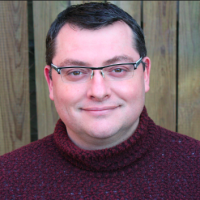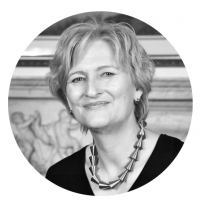Episode 26: Deep History and Politics in Eastern Germany Today

Eric Langenbacher
Senior Fellow; Director, Society, Culture & Politics Program
Dr. Eric Langenbacher is a Senior Fellow and Director of the Society, Culture & Politics Program at AICGS.
Dr. Langenbacher studied in Canada before completing his PhD in Georgetown University’s Government Department in 2002. His research interests include collective memory, political culture, and electoral politics in Germany and Europe. Recent publications include the edited volumes Twilight of the Merkel Era: Power and Politics in Germany after the 2017 Bundestag Election (2019), The Merkel Republic: The 2013 Bundestag Election and its Consequences (2015), Dynamics of Memory and Identity in Contemporary Europe (co-edited with Ruth Wittlinger and Bill Niven, 2013), Power and the Past: Collective Memory and International Relations (co-edited with Yossi Shain, 2010), and From the Bonn to the Berlin Republic: Germany at the Twentieth Anniversary of Unification (co-edited with Jeffrey J. Anderson, 2010). With David Conradt, he is also the author of The German Polity, 10th and 11th edition (2013, 2017).
Dr. Langenbacher remains affiliated with Georgetown University as Teaching Professor and Director of the Honors Program in the Department of Government. He has also taught at George Washington University, Washington College, The University of Navarre, and the Universidad Nacional de General San Martin in Buenos Aires, Argentina, and has given talks across the world. He was selected Faculty Member of the Year by the School of Foreign Service in 2009 and was awarded a Fulbright grant in 1999-2000 and the Hopper Memorial Fellowship at Georgetown in 2000-2001. Since 2005, he has also been Managing Editor of German Politics and Society, which is housed in Georgetown’s BMW Center for German and European Studies. Dr. Langenbacher has also planned and run dozens of short programs for groups from abroad, as well as for the U.S. Departments of State and Defense on a variety of topics pertaining to American and comparative politics, business, culture, and public policy.
__

Jeff Rathke
President of AGI
Jeffrey Rathke is the President of the American Institute for Contemporary German Studies at the Johns Hopkins University in Washington, DC.
Prior to joining AICGS, Jeff was a senior fellow and deputy director of the Europe Program at CSIS, where his work focused on transatlantic relations and U.S. security and defense policy. Jeff joined CSIS in 2015 from the State Department, after a 24-year career as a Foreign Service Officer, dedicated primarily to U.S. relations with Europe. He was director of the State Department Press Office from 2014 to 2015, briefing the State Department press corps and managing the Department's engagement with U.S. print and electronic media. Jeff led the political section of the U.S. Embassy in Kuala Lumpur from 2011 to 2014. Prior to that, he was deputy chief of staff to the NATO Secretary General in Brussels. He also served in Berlin as minister-counselor for political affairs (2006–2009), his second tour of duty in Germany. His Washington assignments have included deputy director of the Office of European Security and Political Affairs and duty officer in the White House Situation Room and State Department Operations Center.
Mr. Rathke was a Weinberg Fellow at Princeton University (2003–2004), winning the Master’s in Public Policy Prize. He also served at U.S. Embassies in Dublin, Moscow, and Riga, which he helped open after the collapse of the Soviet Union. Mr. Rathke has been awarded national honors by Estonia, Latvia, and Lithuania, as well as several State Department awards. He holds an M.P.P. degree from Princeton University and B.A. and B.S. degrees from Cornell University. He speaks German, Russian, and Latvian.
__

Simone Lässig
German Historical Institute Washington
Dr. Simone Lässig is the Director of the German Historical Institute Washington. She is a cultural and social historian of the nineteenth and twentieth centuries. Her research has focused on Jewish history, religion and religiosity, philanthropy and patronage, and memory cultures and the politics of memory. Simone Lässig has done work on educational media and she is particularly interested in digital history.
How does the past shape today’s politics? For states in eastern Germany, memories of life in the German Democratic Republic are not that distant of a past. One example is the state of Saxony in the southeast of the country, which was a part of East Germany until unification in 1990. It is home to large cities like Dresden and Leipzig, and has 4 million inhabitants—a mid-sized German state.
Saxony is known nowadays for a few things: it has been ruled uninterruptedly for thirty years by the center-right CDU party; and it is the state with the highest level of public support for the far-right AfD party—the so-called “Alternative for Germany,” which won 27.5 percent of the votes in last year’s state election. It was also the place where the extreme anti-immigrant PEGIDA movement got its start, and where in 2018 during a demonstration, a group of right-wing extremists attacked and chased foreigners in the city of Chemnitz.
But Saxony is more than that. It was the cradle of the peaceful revolution in 1989, where courageous citizens in Leipzig with their peaceful protests set an example that spread throughout the country and brought down the sclerotic and oppressive East German state. In the nineteenth century, it was a stronghold of the labor movement, out of which the Social Democratic Party grew. More distantly, it was the home of Martin Luther, who just over 500 years ago began the Protestant Reformation in Saxony.
Saxony has been ahead of its time and brought forth movements that had an impact well beyond its borders throughout history. What explains that history, and what effect does it have today? How exceptional is Saxony compared to other eastern German Länder, as well as other post-communist countries in Central and Eastern Europe?
On this episode of The Zeitgeist, AGI’s Jeff Rathke and Dr. Eric Langenbacher are joined by Dr. Simone Lässig, Director of the German Historical Institute Washington, to discuss the intersection of politics and history in Saxony today.
Host
Jeff Rathke, President, AGI
Guests
Dr. Simone Lässig, Director, German Historical Institute Washington
Dr. Eric Langenbacher, Senior Fellow and Director, Society, Culture & Politics Program






